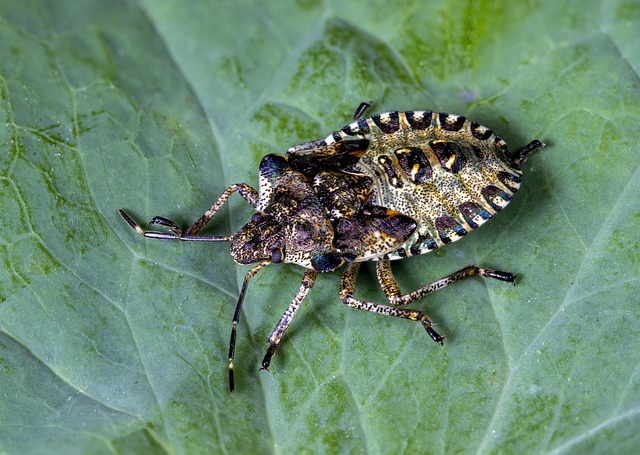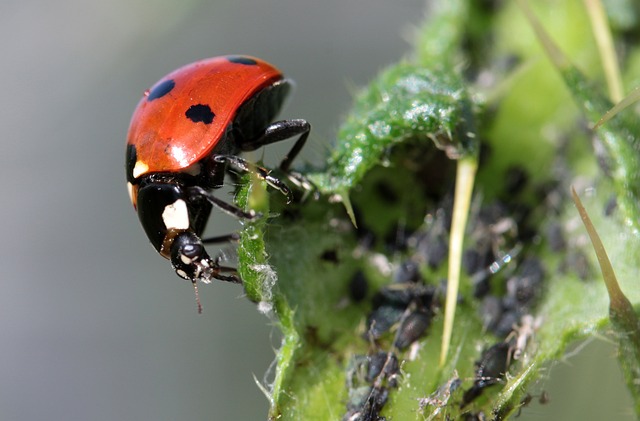Licensed Pest Control: Safeguarding Health & Environments
Licensed pest control services are essential for maintaining healthy living and working spaces, ensuring safe management of pesticides and insecticides. Stringent regulations, comprehensive training, inspections, and certifications guarantee qualified professionals handle pests using eco-friendly methods, preventing reinfestation, and prioritizing customer safety. Licensing is crucial, verifying legal compliance and professional expertise in pest behavior, pesticide application, and environmental stewardship. Engaging licensed providers offers peace of mind, effective pest control, reduced health & environmental risks, and warranties for residential and commercial properties. Transparent agreements between customers and licensed professionals ensure mutual understanding and successful pest management outcomes across sectors like agriculture and urban areas.
“In today’s world, effective yet legal pest control is essential for maintaining healthy living and working spaces. Understanding licensed pest control services and their critical role in society is paramount. This comprehensive guide delves into the intricacies of licensed pest management, exploring legal and safety frameworks, common pest types, licensing requirements, expertise, benefits, customer rights, and successful case studies. By employing reputable, licensed pest control companies, you ensure not just effective treatment but also adherence to vital regulations.”
Understanding Licensed Pest Control Services: The Legal and Safety Framework

Licensed pest control services are a critical component of maintaining healthy living and working environments. These professionals are equipped with the knowledge, tools, and most importantly, legal permits to handle pesticides and insecticides safely and effectively. The regulatory framework surrounding licensed pest control ensures that businesses and individuals adhere to strict guidelines designed to protect public health, water sources, and the environment from potential harm caused by these chemicals.
This legal framework involves comprehensive training programs, regular inspections, and ongoing certifications for pest control operators. By requiring specific qualifications, regulators ensure that only competent and knowledgeable personnel can apply pesticides. This not only safeguards against accidental poisoning but also minimizes environmental pollution, as licensed professionals are trained to identify and target pests specifically, reducing the need for excessive or inappropriate chemical use.
Why Hire Licensed Professionals for Pest Management?

Hiring licensed pest control professionals is a smart choice for several reasons, especially when dealing with potentially harmful insects and rodents. These experts possess the necessary training and certifications, ensuring they have the expertise to handle various pests effectively and safely. They stay updated on the latest industry standards and regulations, which is crucial in a field where chemical applications and environmental impact are significant concerns.
Licensed professionals offer several advantages. They provide tailored solutions for different pest problems, using advanced equipment and eco-friendly methods when possible. With their deep knowledge of pest behavior and life cycles, they can implement targeted strategies that prevent reinfestation. Additionally, these experts prioritize customer safety, ensuring that any treatments are conducted with minimal risk to occupants and pets.
Types of Pests and Common Legal Considerations in Pest Control

Pest control services often encounter a wide range of insects, rodents, and other pests, each requiring specific strategies for effective management. Common household pests include ants, cockroaches, termites, mice, rats, and spiders, among others. Each type has unique characteristics, habitats, and behaviors, necessitating tailored control methods. For instance, ants are known for their complex colony structures, while termites require strategic baits to target without harming non-target species.
When it comes to legal considerations in pest control, ensuring that all practices align with local, state, and federal regulations is paramount. Licensing is a critical aspect; only licensed pest control providers can legally offer services, guaranteeing they’ve undergone the necessary training and adhere to safety standards. Permits and certifications for specific chemicals and methods further ensure responsible pest management, protecting both human health and the environment from potential harm. These legal requirements are in place to maintain a balance between controlling pests and preserving biodiversity.
The Licensing Process: What You Need to Know Before Hiring

Before hiring any pest control service, understanding the licensing process is paramount. In most regions, pest control providers must obtain specific licenses to operate legally and ensure they meet industry standards and safety regulations. This process typically involves registration with local or state authorities, completion of training programs, and passing examinations to demonstrate proficiency in pest management techniques and chemical handling.
Licensed pest control companies possess the necessary credentials, showcasing their commitment to delivering safe and effective services. Hiring a licensed provider protects both your property and health, as these professionals are held accountable for their actions. Moreover, licensing ensures that the company stays updated on the latest industry standards and uses approved methods and products, providing peace of mind during the pest control process.
Expertise and Training: Ensuring Quality Service from Licensed Providers

When hiring a pest control provider, one of the most crucial aspects to consider is their expertise and training. Licensed pest control professionals undergo rigorous training and education to understand the complex world of pests, their behavior, and the best methods for control. This includes learning about various pesticides, their safe application, and the environmental impact, ensuring that treatments are effective and eco-friendly.
Having a licensed provider means you can trust that they possess the knowledge and skills to handle any pest problem, from identifying invasive species to using the right equipment. These professionals stay up-to-date with industry standards and regulations, providing quality service that meets or exceeds expectations. Their expertise is invaluable in ensuring your home or business remains pest-free and safe for occupants and the environment.
Benefits of Working with Reputable, Licensed Pest Control Companies

Working with reputable, licensed pest control companies offers numerous advantages for both residential and commercial property owners. One of the primary benefits is ensuring safety. These professionals are trained to handle pesticides and other chemicals in a safe and responsible manner, minimizing risks to human health and the environment. They adhere to strict regulatory standards and use products that are approved by relevant authorities, providing peace of mind that your family or workplace is protected.
Moreover, licensed pest control providers bring expertise and specialized knowledge. They can identify various pests accurately, determine the best course of action, and employ tailored solutions. This reduces the chances of pest resistance to treatments over time. Additionally, reputable companies often provide comprehensive warranties on their services, ensuring customer satisfaction and offering protection against recurring pest issues.
Customer Rights and Responsibilities in Pest Control Agreements

When entering into a pest control agreement with a licensed pest control provider, customers have rights and responsibilities that are crucial for ensuring effective and ethical service. One of the primary consumer rights is to expect professional and safe treatment methods. This includes the use of approved pesticides and chemicals, as well as adherence to local environmental regulations. Customers also have the right to be informed about the services being provided, the potential risks, and the costs involved. Transparency from the pest control provider builds trust and enables consumers to make informed decisions.
Responsibly, customers should provide accurate information about their pest issues and maintain open lines of communication with the service providers. They are expected to follow any guidelines or instructions given by the licensed pest control experts, such as maintaining a clean environment, sealing entry points, and ensuring easy access to affected areas. Moreover, customers have the responsibility to understand and comply with any restrictions or precautions related to the treatment, including evacuation or temporary relocation if necessary. Collaboration between clients and providers is key to achieving successful pest management outcomes.
Case Studies: Successful Implementation of Legal Pest Control Practices

Successful implementations of legal pest control practices can be found in numerous case studies across various industries and regions. One standout example involves a large agricultural company that adopted licensed pest control methods to manage infestations on their vast farms. By employing professionals with extensive knowledge of integrated pest management (IPM), they were able to reduce the use of toxic chemicals while maintaining crop yields and quality. This approach not only benefited the environment but also enhanced the company’s reputation among consumers concerned about sustainable farming practices.
Another notable case involves a metropolitan area struggling with urban pest issues, such as rodents and insects. Local authorities partnered with licensed pest control providers to implement targeted, non-toxic solutions tailored to specific neighborhoods. Through community engagement and education campaigns, residents were encouraged to participate in preventive measures while professionals handled severe infestations. The result was a significant reduction in pest complaints, improved public health, and a safer, more livable environment for all inhabitants.
